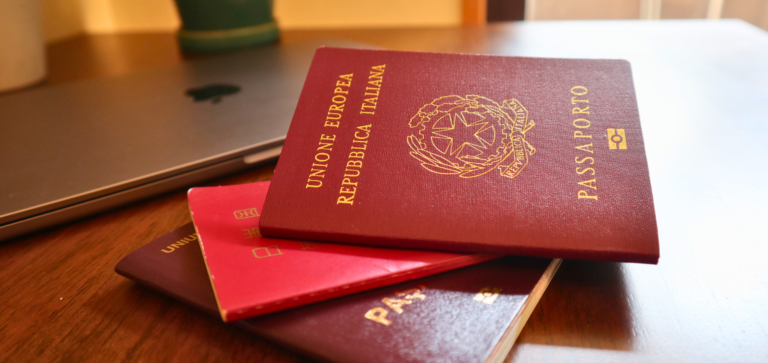In March 2025, the Italian government introduced new requirements for Italian citizenship, especially those obtaining it through descent (jure sanguinis). Previously, individuals could claim Italian citizenship if they had an ancestor who was alive after March 17, 1861—the date of Italy’s unification. However, the revised rules now impose stricter eligibility conditions.

Key changes to citizenship by descent
Under the new legislation, applicants must have at least one parent or grandparent born in Italy to qualify for citizenship. Those tracing their lineage to great-grandparents or more distant ancestors are no longer eligible. This significant change aims to ensure that applicants have a closer and more direct connection to Italy.
Additionally, the government has introduced the requirement for a vincolo genuino (genuine link) between the applicant and Italy. This means that applicants must demonstrate tangible ties to the country, such as recent residence, direct parental relationships, or ongoing cultural and social connections. The goal is to prioritize applicants who have an active relationship with Italy rather than granting citizenship solely based on distant ancestry.
Applications submitted before March 27, 2025, will still be processed under the previous regulations. Those who have already initiated their applications before this date will not be affected by these new restrictions.
These changes are part of Italy’s effort to streamline the citizenship process and reduce the overwhelming number of applications from individuals with distant Italian ancestry. By refining the criteria, the government aims to ensure that Italian citizenship is granted to those with a meaningful and contemporary connection to the country.

General requirements for Italian citizenship
Aside from the recent changes, there are several ways to obtain Italian citizenship, each with its own set of requirements.
1. Citizenship by birth (Jure Sanguinis)
Even with the new regulations, Italy still recognizes citizenship by descent, but with the limitations mentioned above. Applicants must:
- Prove direct lineage to an Italian parent or grandparent.
- Provide official birth and marriage records of their ancestors.
- Demonstrate a genuine link to Italy, such as cultural ties or residency.
2. Citizenship by naturalization
Foreigners can apply for Italian citizenship through naturalization if they meet the following criteria:
- 10 years of legal residence in Italy for non-EU citizens.
- 4 years for EU citizens.
- 5 years for refugees and stateless individuals.
- 2 years for individuals of Italian descent born outside Italy.
Applicants must also:
- Have a clean criminal record.
- Show financial stability.
- Demonstrate at least a B1 level proficiency in the Italian language. If you are interested in learning Italian to reach the needed level, we can help, contact us!
3. Citizenship by marriage (Jure Matrimonii)
Foreign spouses of Italian citizens can apply for citizenship under the following conditions:
- 2 years of marriage and residence in Italy.
- 3 years of marriage if residing abroad.
- This period is reduced to 1 year in Italy or 18 months abroad if the couple has children.
- Proficiency in Italian at the B1 level is also required.
4. Citizenship by birth in Italy (Jure Soli)
Italy does not automatically grant citizenship to individuals born on its soil unless:
- At least one parent is an Italian citizen.
- The child is stateless.
- The child has lived continuously in Italy until turning 18 and applies for citizenship within one year of reaching adulthood.

Italian language requirement
As part of the citizenship process, applicants for naturalization and marriage-based citizenship must prove Italian language proficiency at the B1 level of the Common European Framework of Reference for Languages (CEFR).
Accepted language certifications must be issued by recognized institutions such as:
- Università per Stranieri di Perugia (CELI)
- Università per Stranieri di Siena (CILS)
- Società Dante Alighieri (PLIDA)
Most of our school partners offer preparation courses for these certificates, contact us for more info.
Alternatively, applicants who have obtained an educational qualification from an Italian institution are exempt from providing an additional language certificate.
If you want to know more about Italy and Italian culture, follow us on our social media pages!



